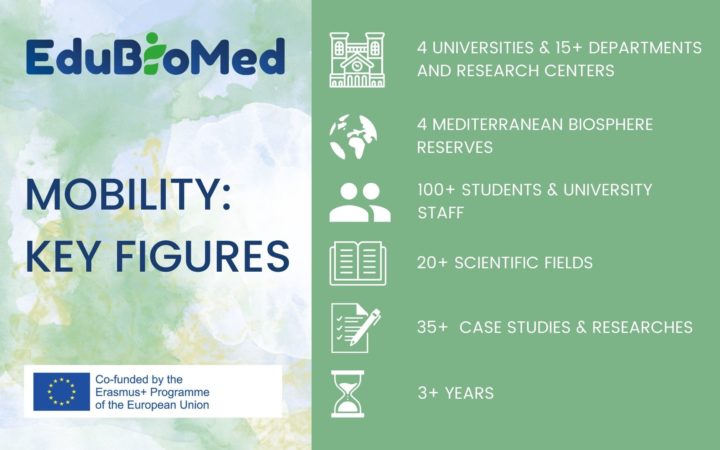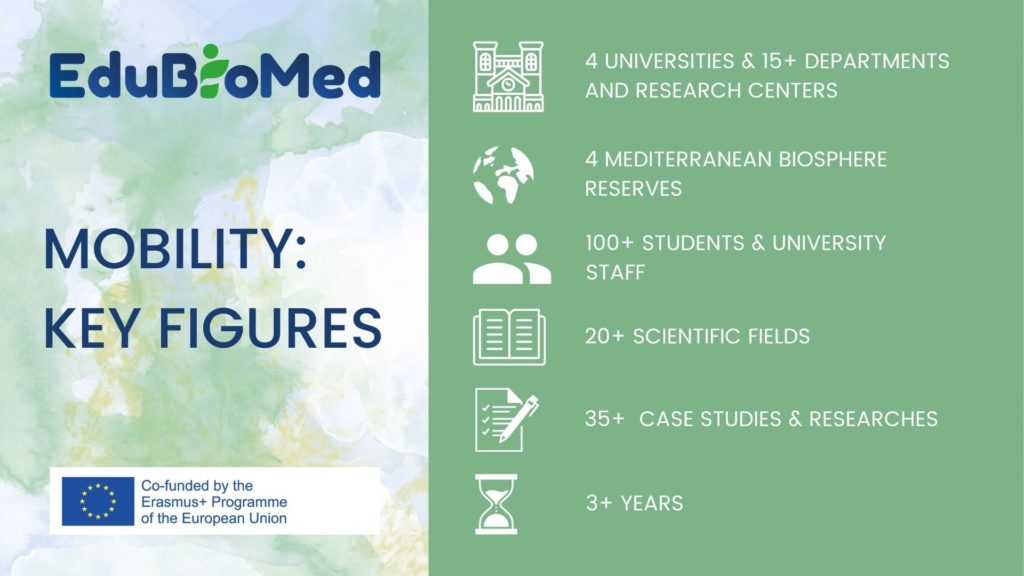
Posted on
Architecture, Environmental Sciences and Management, Forest fires management, Media studies, Tourism studies, Gender studies, Economics, Engineering, Agriculture, Development studies, Environmental studies, Human Geography, Mycology, Biology, Nutrition studies, Environmental Chemistry, Botany, Landscape design, Agroecology….these are the main disciplines involved in the case studies carried on by students and researchers who have participated in the Mobility plan of the project.
More than 100 students, staff and researchers from the Université Cadi Ayyad de Marrakesh, Université Mohammed V de Rabat, American University of Beirut and Université Saint-Joseph de Beyrouth, in the three years of project have conducted more than 35 researches and case studies in 4 Biosphere Reserves, Jabal Moussa and Shouf in Lebanon and Arganeraie (Morocco) and Intercontinental Biosphere Reserve of the Mediterranean (Morocco-Spain). And to achieve these numbers the project has counted on the close collaboration and involvement of more than 15 Biosphere Reserves management staff and more than 15 Universities departments and research centers.
Due to the COVID pandemic, only 3 international mobilities took place among the case studies conducted, but still the field visits done by Moroccan students and researchers in Moroccan Biosphere Reserves and by Lebanese students and researchers in Lebanese Biosphere Reserves gave the possibility for Universities and Biosphere Reserves to cooperate, to getting closer and better realise how the two actors have to collaborate in order to upgrade and improve University Curricula of study and people awareness when it comes to the environmental, social, economic and local sustainable development.
Besides, and more on individual impact, being engaged in case studies and having the possibility to participate in field work and visits has helped Lebanese students to better overcome these last two years which, if at the international level have been affected by a pandemic, at country level have met further challenges because of the social and political crisis.




